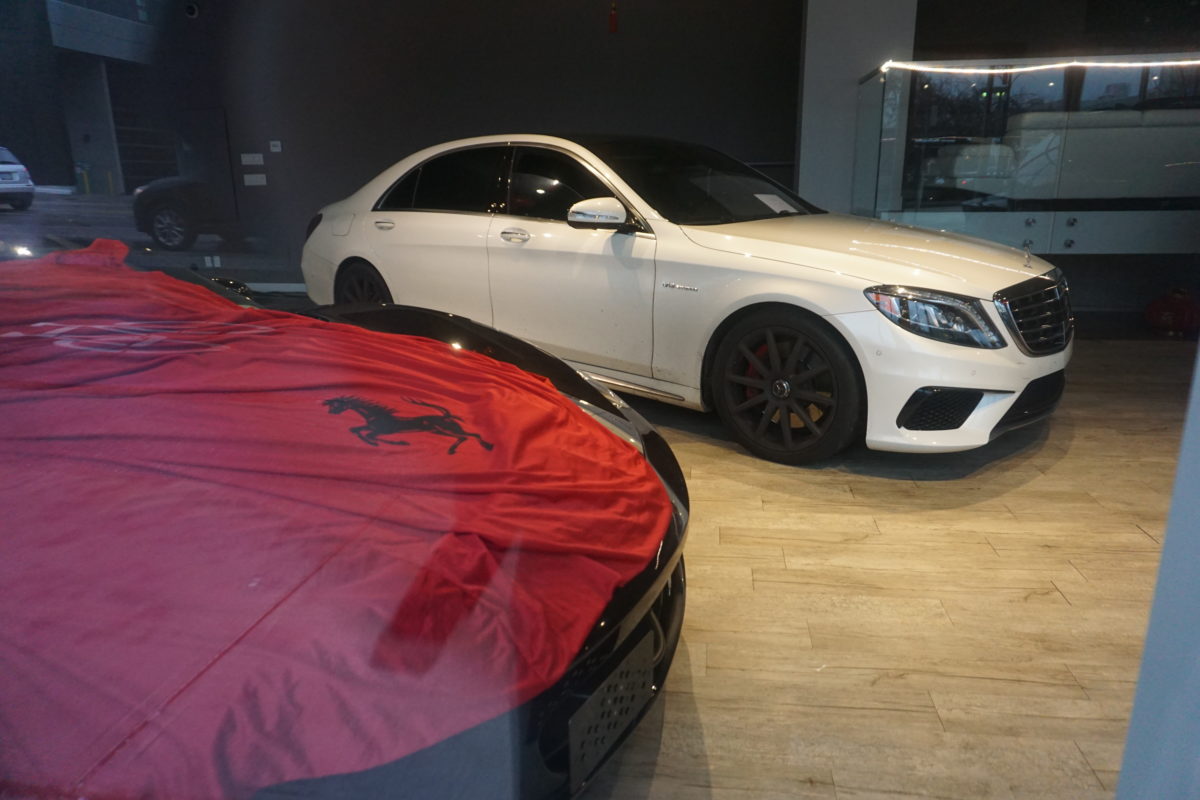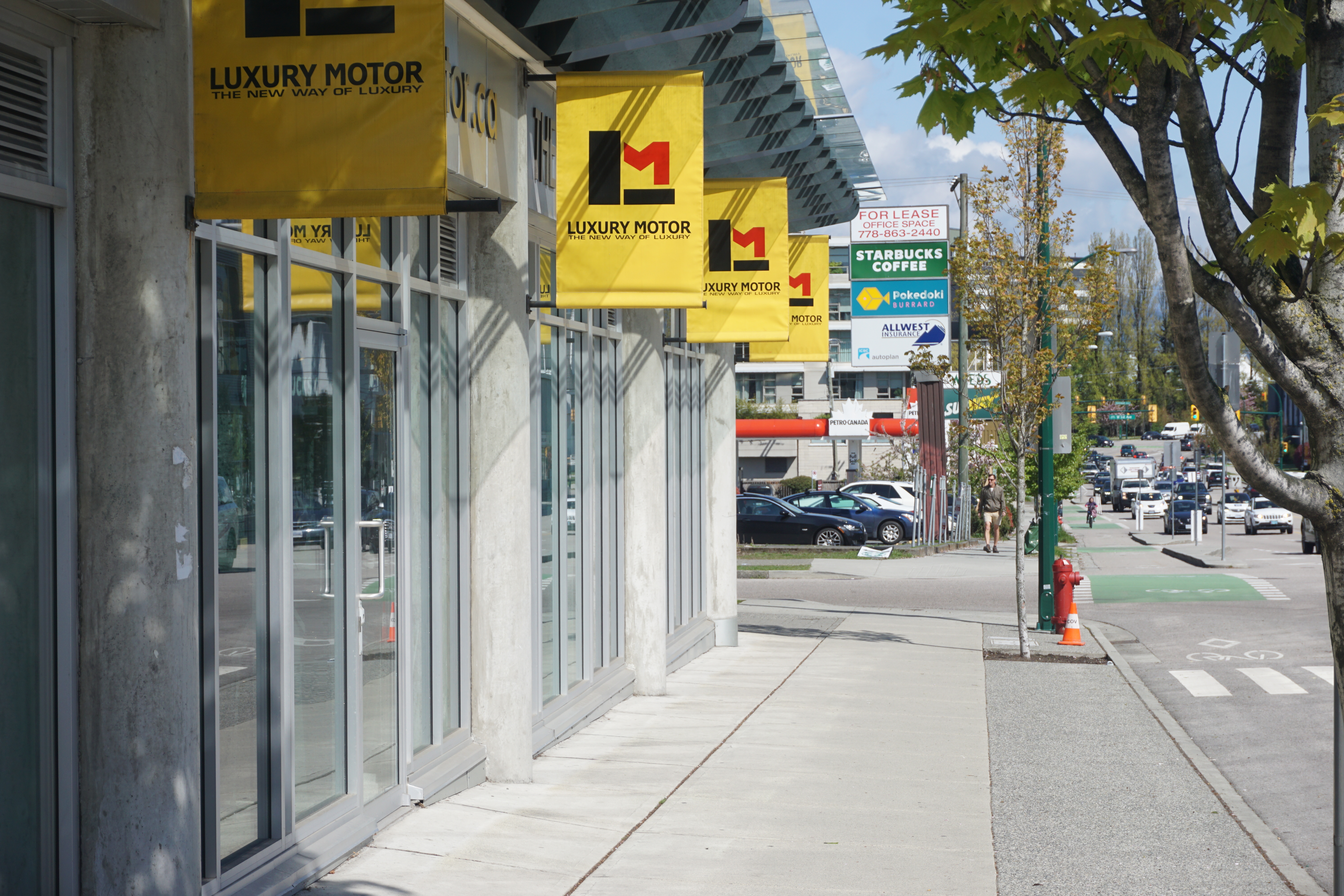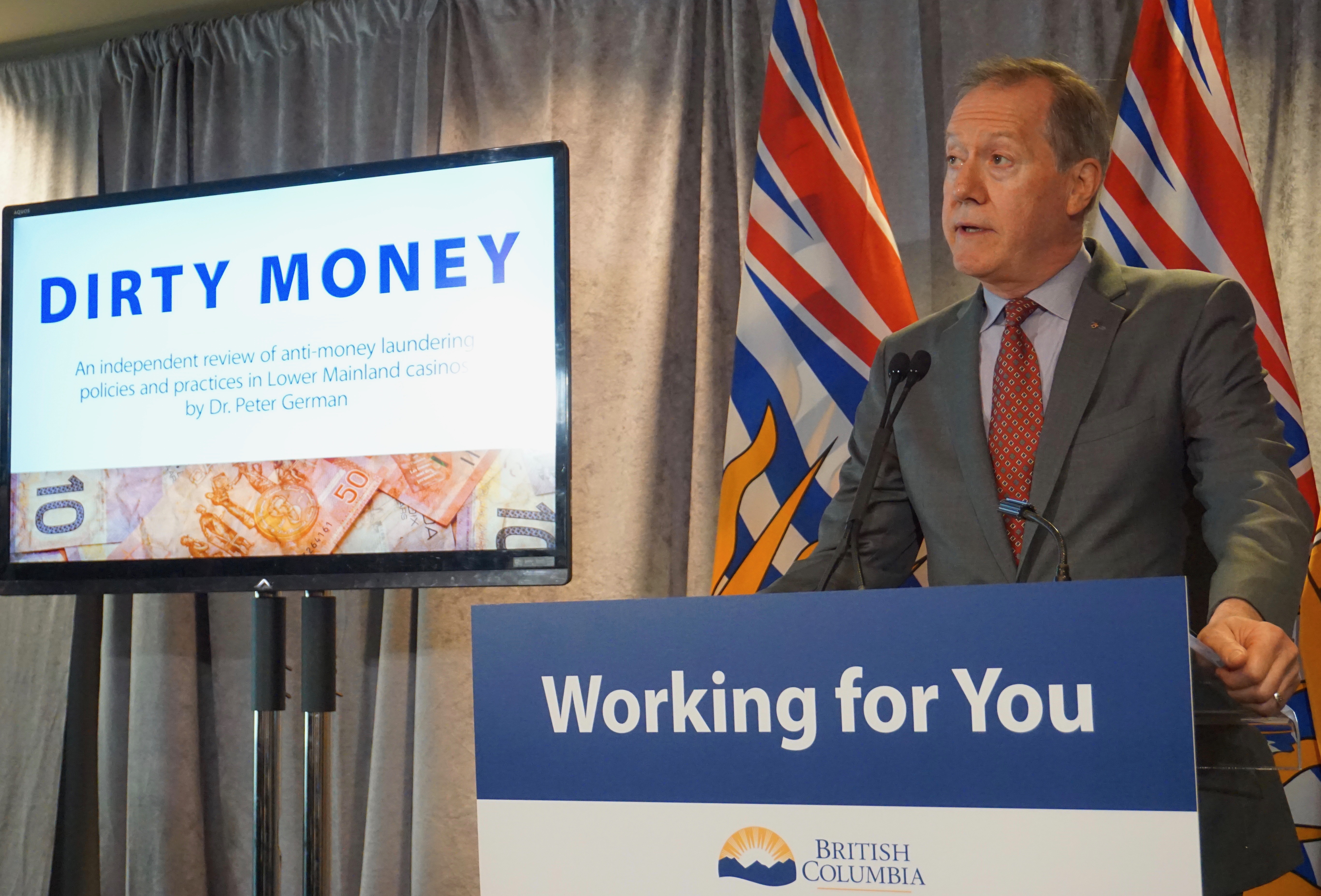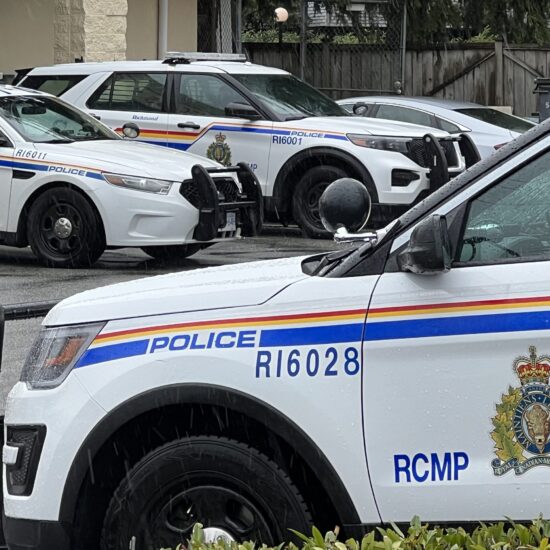
Bob Mackin
British Columbia is home to a thriving underground market for luxury vehicle exports to China that provides a “wonderful opportunity for large-scale money laundering with very little chance of detection,” wrote Peter German in his report released May 7.

One of several Burrard Street supercar stores (Mackin)
According to German, the money laundering expert and former senior Mountie hired by Attorney General David Eby, there were less than 100 luxury vehicles exported to China from B.C. in 2013. By 2018, that number had exploded to more than 4,400, according to Ministry of Finance data.
“These vehicles are purchased for domestic use by straw buyers, working for a fee or commission on behalf of exporters, who then rapidly ship the vehicles overseas where international price differentials ensure huge profits,” German wrote. “B.C.’s unique geographic location and ethnography make it an incredibly attractive venue for this activity.”
German, who was assisted by former Vancouver Police Deputy Chief Doug LePard, found that exporters will work with a network of family, friends and sometimes people who are recruited online or word of mouth. The straw buyers will sign paperwork at dealerships, buy cars and drop them off to be exported. They receive a small commission, from a few thousand dollars to less than 5% of a vehicle’s value.
German found that during the 2016-2017 fiscal year, one straw buyer made in excess of 25 purchases, 1,000 straw buyers were apparently linked to one exporter and, in many cases, the identification provided by the straw purchaser is a People’s Republic of China passport, not a B.C. driver’s licence. Straw buyers had an incentive to flip the cars quickly to exporters. If resold within seven days of purchase, the provincial government refunds the provincial sales tax. There were refunds of at least $55 million on nearly 8,000 vehicles sold that year, with a total purchase value of $555 million.
theBreaker.news was first to report about the outcomes of two sensational disputes before the B.C. Supreme Court. They were both cases of luxury car exports to China gone awry.
A Lower Mainland real estate investor, whose company supplied steel to the Beijing 2008 Olympics, failed to convince a judge last year who was responsible for losing the BMW she bought and sent to China. In April, a judge awarded a former University of British Columbia student $329,000 after the BMW supercar that his mother bought him went missing in China.
In his verdict on the former case, Justice Christopher Grauer wrote that since 2010, only Chinese government representatives, high-level personnel and specially invited experts have been allowed to import cars into China.
German wrote that certain resellers have sullied the reputation of resellers in general, because of their willingness to deal with nefarious characters. Identities of cash providers are not recorded and underground banks are often used. One dealer, whose name was not published, said customers use the Chinese WeChat Pay and UnionPay systems. Another said large cash transactions happen monthly and even recalled how a young person brought $200,000 in cash to buy a car.
Said another: “About 10 times a month we’ll get a foreign student with zero credit, zero job income, but proof of income through incoming wire transfers and the bank will provide financing because they are accepting the wire transfers and bank statements as proof of income. It’s unequivocally money laundering. People who are not employed, don’t pay tax, showing bank statements with large sums being wired frequently into their accounts…”

Peter German’s original Dirty Money report was released June 27, 2018 (Mackin)
German wrote that certain high-end, luxury vehicle dealers are known to police, including for serious drug and other offences. But the absence of mandatory financial reporting to [federal financial intelligence agency] FinTRAC is a serious impediment with respect to resellers as it is with new car dealers.
Another problem is the lack of dedicated police officers in the ports of Vancouver, Surrey and Prince Rupert.
There aren’t any.
The federal Liberal government shut down the Ports Canada Police in 1997 in a controversial move spearheaded by then-Fisheries and Oceans Minister David Anderson. That left municipal police to monitor the waterfront in their jurisdiction.
“The comparison to Seattle is stark, where the Port of Seattle Police Department has 150 staff to police SeaTac Airport and the seaport, including numerous specialized units,” German wrote. “In addition, U.S. federal authorities are present at the ports, including border patrol, customs officers, and others.”
Presently there is a “huge gap” which allows the grey market to operate, but German said the problem could be solved by a requirement of luxury car dealers to report to FinTRAC.
German’s report said the province should consider preventing dealers from accepting deposits or payments on vehicles of more than $10,000, and it should consider allowing the Vehicle Sales Authority to suspend resellers and require the principals to undergo criminal record and background checks.
Support theBreaker.news for as low as $2 a month on Patreon. Find out how. Click here.











